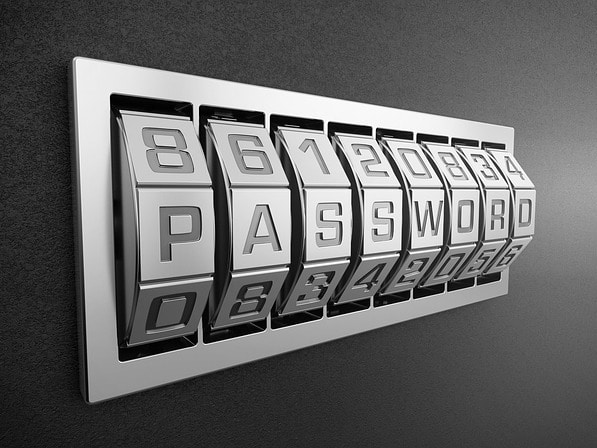
We have passwords for everything: our email, social media, and financial accounts, just to name a few. Additionally, we have PINs and secret authorization questions. Experts often provide password tips, but we must remember and record the information. It is a challenge. To combat this security fatigue, we suggest using a password manager to improve security and ensure the continuity of your business.
Some people use the built-in save-password function on their internet browser to store their passwords. However, if your computer is stolen or damaged, you will likely lose access to all your passwords – or worse, someone else could gain access to them!
There are various password manager applications available. When we wrote about reducing paper clutter, we suggested using a password manager and mentioned 1Password in our Productivity Pointers series. There are a few others, including Dashlane and Keeper. Each application has slightly different features and price packages available, but they all have the following benefits.
Create and Change Passwords Easily
Employees can create long, complicated passwords by merely clicking the built-in random password generator. If you have not changed your passwords in a certain period of time, the password manager will alert you. Also, if the website you are logging into has had a recent security breach, it will advise you to create a new password.
Record Other Secure Information
Password managers can also securely store software licences, client account numbers, employee IDs, payment account numbers, etc. Employees can also access responses to security questions if they need to verify their identity on a particular website. By the way, answers to security questions should follow rules similar to those for passwords. Instead of providing a pet’s name, which anyone might guess, use something more complex, such as RudyBuLLdØgS1ngs.
Share Passwords With Certain People
One of the most significant features of password managers is the ability to share passwords with certain people. Compliance with security protocols is a concern. Companies must protect themselves from getting hacked and ensure the confidentiality and privacy of specific information within their business. Password managers can assist small businesses in this regard at a relatively low cost. Employers can password-protect specific files or folders and restrict access to specific employees, and they can quickly enable/disable privileges as needed. Sole entrepreneurs can use this feature, too. By designating an emergency contact person, a friend or family member can access your accounts to keep your business operational in a crisis.
Sync Data Across Devices
Password managers can store encrypted data on cloud servers, allowing your employees to access information wherever and whenever needed, and it will be up-to-date at all times. Off-site employees can access their passwords and other secure data when required without bothering co-workers or the IT department.
Auto-fill Repetitive Sensitive Data
Using the password manager, employees can automatically fill website forms with contact and payment information with one click. This saves time while still keeping the data secure.
Password managers help maintain security compliance, simplify business processes, and keep you productive. Look for features like multi-key encryption, two-step authentication, and other security features your business might require. Additionally, choose one that is intuitive for you and your team because if you can’t use it easily, you likely won’t use it at all.
If you are looking for more productivity tips, feel free to read any of our business organizing posts. If you want some “hands-on” organizing assistance or are interested in a productivity workshop, you are welcome to contact us.
Image by AbsolutVision on Pixabay.
